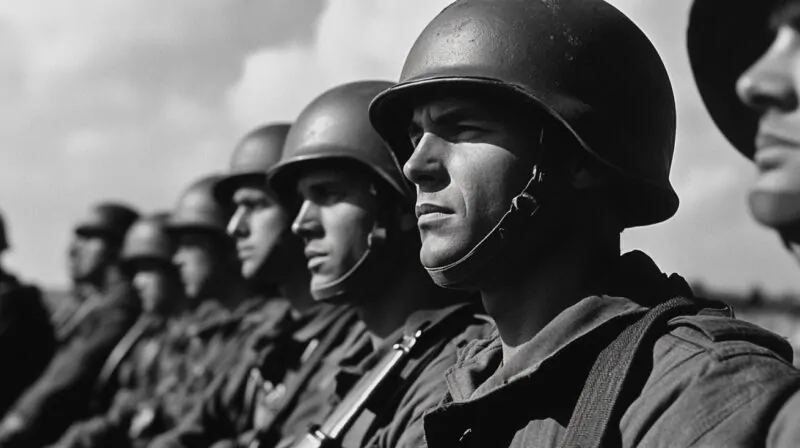Off-duty injuries can have far-reaching consequences for military personnel, especially when it comes to accessing benefits.
Service members must be aware of how injuries sustained during non-duty hours affect their entitlements.
A crucial aspect of this is the Line of Duty (LOD) determination, which assesses the circumstances surrounding the injury and its implications for military benefits.
Table of Contents
ToggleDefining Off-Duty Injuries and Military Duty Status

Off-duty injuries occur during times when a service member is not actively engaged in military duties, such as during personal leave, off-base recreational activities, or other non-combat settings. While these injuries might seem personal, they often undergo extensive review to determine their connection to military service.
The Line of Duty (LOD) determination process is crucial in evaluating the service member’s duty status at the time of the injury. This process examines various factors, including:
- Whether the incident occurred during officially sanctioned leave or a personal activity.
- If the location of the incident was within or outside the scope of military responsibilities.
- Any involvement of misconduct, such as willful negligence or actions influenced by alcohol or drugs.
- Absence Without Leave (AWOL) status at the time of the incident.
Evidence for Personal Injury in LOD Determinations
The LOD determination requires evidence to substantiate claims, especially in cases where personal injuries occur off-duty. Examples of critical evidence include:
- Medical Records: Documenting the nature and severity of the injury.
- Eyewitness Statements: Accounts of the incident provided by others present at the scene.
- Official Reports: Police or incident reports detailing the circumstances.
- Photographic Evidence: Images of the scene or injury for clarity.
These records are critical for establishing the context of the injury and ensuring fair evaluation by military officials.
Line of Duty Determinations and Their Outcomes

The military categorizes LOD determinations into distinct outcomes that directly impact a service member’s benefits. These categories include:
- Existed Prior to Service: Conditions identified as pre-existing and unrelated to military service are classified in this category. No compensation is provided for such cases.
- In Line of Duty: Injuries linked to military service, including those during authorized leave or travel, fall into this category. Benefits are typically granted in these cases.
- Not in Line of Duty, Due to Misconduct: Incidents resulting from personal negligence or misconduct, such as driving under the influence, are classified here. Benefits may be forfeited under this designation.
- Not in Line of Duty, Not Due to Misconduct: For injuries outside military scope without misconduct, limited benefits may apply, depending on the circumstances.
These determinations significantly impact disability retirement, severance pay, and access to veteran benefits.
For example, an “in line of duty” finding ensures comprehensive coverage, while a “not in line of duty, due to misconduct” finding can disqualify a member from receiving these resources entirely.
Impacts on Benefits
Military health benefits are contingent on the nature of the injury and the LOD determination.
Loss or Reduction of Military Health Benefits
Military health benefits are directly tied to the LOD determination. Injuries resulting from misconduct, negligence, or actions like substance abuse often lead to a reduction or complete loss of benefits.
For example, if a service member sustains an injury while engaging in reckless behavior, such as drunk driving, they may lose access to military healthcare.
Loss of Pay and Enlistment Extensions
LOD determinations can result in financial consequences, including the loss of pay. In some cases, service members are required to extend their enlistment to cover the time lost due to the injury.
These extensions can delay career advancements and retirement eligibility, adding additional stress to service members and their families.
Disqualification from Veteran Benefits
Injuries deemed as “not in the line of duty, due to misconduct” can disqualify a service member from accessing veteran benefits.
It includes disability pay, housing assistance, and educational benefits, which many rely on after service.
Without these resources, transitioning to civilian life can become more challenging, particularly for those already facing financial or medical hardships.
Limited Compensation Under the Armed Forces Compensation Scheme (AFCS)
View this post on Instagram
A post shared by Personal Injury Lawyers in Manchester (@jmwinyourcorner)
The AFCS provides compensation for service-related injuries but does not cover many off-duty incidents. Injuries sustained during unauthorized activities or those involving personal misconduct, such as drug use, are excluded.
For example, a service member injured while engaging in unauthorized extreme sports may not qualify for compensation under this scheme. This exclusion further underscores the importance of adhering to regulations even during personal activities.
Financial and Medical Burden on Families
When benefits are reduced or denied, the financial and medical burdens often extend to the service member’s family. Without access to military healthcare, families may face overwhelming medical expenses.
If a member is disqualified from retirement pay due to an adverse LOD determination, their long-term financial security can be significantly impacted. Prolonged enlistments to cover costs can also disrupt family life and future plans.
Legal and Financial Implications of Off-Duty Injuries

Off-duty injuries often lead to legal and financial complications. Challenges in claiming compensation reduced access to benefits, and career setbacks are common.
Medical downgrading or discharge due to off-duty injuries can hinder career progression and diminish future pension benefits. Additionally, service members may lose access to essential resources like medical and dental care or educational allowances for dependents.
Seeking legal advice can be crucial in navigating MOD claims and securing rightful compensation. For instance, in cases involving road traffic collisions during leave, a well-prepared legal strategy can lead to successful settlements, ensuring the injured party receives adequate support.
Service-Connected Disability Compensation
Service-connected disability compensation provides financial and medical support to military personnel who sustain injuries during active duty.
The compensation is not limited to combat-related incidents but also extends to injuries occurring in other scenarios, such as accidents while on authorized leave or during official travel between duty assignments.
These benefits aim to ensure that service members receive support for conditions tied to their military service, regardless of the specific duty context.
However, there are significant limitations to eligibility for this compensation, particularly concerning misconduct. Injuries resulting are generally excluded from actions such as:
- Reckless behavior
- Illegal activities
- Substance abuse
For instance, if a service member is involved in a car accident while under the influence of alcohol, the incident may not qualify for compensation, even if it occurred during active duty.
Are you recovering from surgery, or a disability related to your military service that’s left you unable to move? You may be able to get a temporary 100% disability rating and disability compensation or benefits.https://t.co/qHN5fLn9vZ pic.twitter.com/HTnZUKuI0e
— Veterans Benefits (@VAVetBenefits) October 21, 2024
To secure these benefits, service members must establish a clear connection between the injury and their military service. Thorough documentation is critical in building a strong case. The following steps can help ensure eligibility:
- Obtain detailed accounts from individuals who observed the incident to verify the circumstances.
- Medical documentation must outline the nature and extent of the injury and indicate how it relates to active duty.
- Relevant reports, such as police or military incident documentation, provide essential evidence for claims.
- Consulting with legal experts familiar with military compensation claims can help avoid common pitfalls.
The evidence required to substantiate a service connection includes not just the documentation of the injury but also proof that it occurred under permissible circumstances.
The Bottom Line
The relationship between off-duty injuries and military benefits underscores the importance of careful decision-making and awareness.
By understanding the LOD process and its implications, service members can better protect their entitlements and plan for potential challenges.
Related Posts:
- How Deep Can Submarines Go? What Should You Know
- Top 10 High-Demand Military Occupations You Should…
- The COVID-19 Crisis and Its Impact on Military and…
- The Power of Guerrilla Warfare - Small Armies, Big Impact
- What Benefits Do You Get After 4 Years of Military Service
- How Much Does Military Service Add To Social Security?







